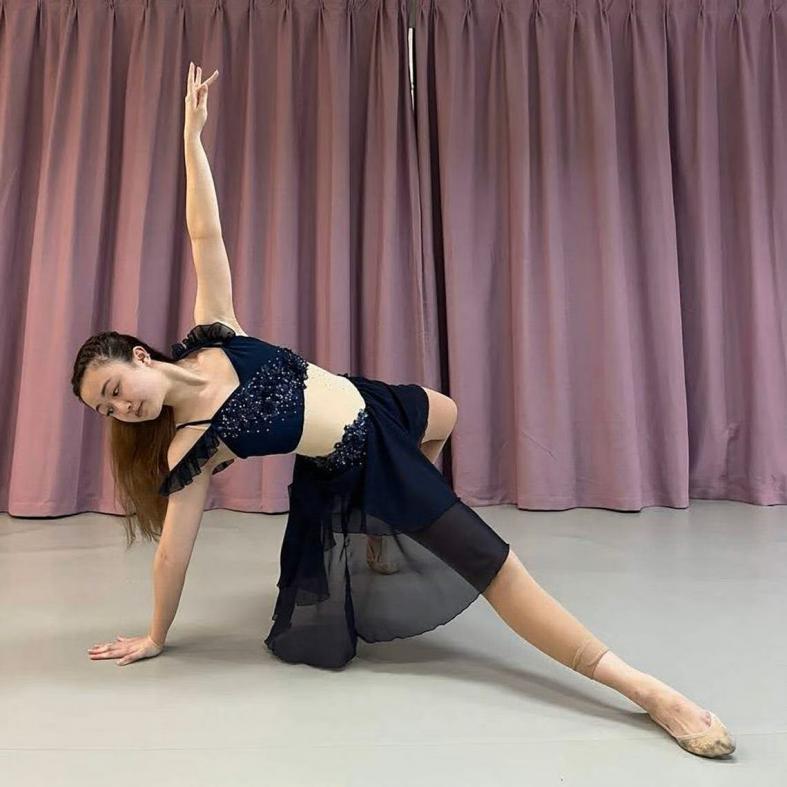Sharing stories to help young people with mental health struggles
Bullied in secondary school, Ms Tammy Tan had panic attacks almost every day in Secondary 3. Behind her back, her classmates would say she was doing it for attention.
She began sitting in the corridor outside her classroom whenever she had a panic attack. When schoolmates walked past, they would ignore her or stare and whisper to their friends.
In Secondary 4, Ms Tan developed an eating disorder and depression, eating less than a meal a day and counting calories obsessively.
“I started slowly isolating myself from people, because I thought there was no point for me to even try to make friends or be friendly with people. Since most people weren’t being kind to me, I decided to just keep to myself,” she said.
“It eventually became spending a lot of time on my own not just in school but even at home, and it escalated into self-harm and suicidal tendencies.”
Ms Tan, 25, is among 20 young people who share their personal struggles in a new book called Gems In The Rough.
Its stories include those of the sister of a boy who has autism, queer youth and those from lower-income backgrounds.
As participants in the National Youth Council’s Youth Action Challenge, undergraduates Riccia Lim, Rebecca Ong, Rebecca Zeng, Tammy Yim, Chong Khai Tjie and Ng Kai Jie started interviewing young people for the project in 2020.
The book was launched on Saturday at Temasek Shophouse as part of their campaign, which includes Instagram page @sgstoriesofyouth and talks by the young people featured.
Ms Lim, a fourth-year architecture student at the Singapore University of Technology and Design, said speaking to fellow young people has given her comfort and guidance in navigating adulthood.
“As youth ourselves, we had the privilege of having heart-to-heart talks with our interviewees. Many of the stories they shared resonated with us – we found that we are not alone in our struggles, that there is hope to be found in relying on our friends and family, and in pressing on.”
Ms Tan described her mental health in secondary school as a downward spiral. “It was just kind of like this slow decline into darkness. You kind of end up just losing yourself in the process, but you don’t realise it until you’re already deep in.”
A turning point came when she was hospitalised for 50 days in the psychiatric ward for her low weight, self-harm and suicide risk.
There, she was kept safe and made to follow a meal plan. She also became friends with other girls in the ward, studying for the O levels with one of them and later taking her exams in the hospital.
She was also motivated to get to a healthy weight so that she could resume ballet lessons, which she had started the previous year and had become passionate about.
“I was slowly coming to learn and realise it’s not that there’s something wrong with me. It’s just that the environment that I was in, for example, school, was not an environment that fit me, but I am still able to find my own people elsewhere who would love and support me.”

When she went to junior college, she decided to share her story on social media. She began receiving many messages from people wanting to share their struggles with someone.
“I realised there are really many other people who were going through similar things. Many of them shared that they didn’t open up to the people around them. The only support that they had was through the online community, through people like me who opened up.”
She added: “The idea of knowing that you are not alone can be something that gives you a lot of courage.”
Ms Tan is now working in public relations and as a trainee ballet teacher on weekends. She looks out for students who seem quiet or “off” and checks in with them.
“I definitely understand it’s something they may not want to share so quickly, but at least they know that there is someone there who cares enough to ask.”
Another young person featured in the book who struggled with her mental health is Ms Nur Haziqah Amellia.
The 24-year-old grew up neglected as her parents paid more attention to her sisters, who were rebellious and had problems in school. Her mother would turn a blind eye even when her younger sister trashed her room.
In 2020, her mental health took a hit when her grandmother, whom she was closest to, died of cancer. A year later, her cat was also diagnosed with cancer.
Around that time, she had a big fight with her sister, felt unsafe at home and sought refuge at a friend’s home. Soon after, she was hospitalised after a suicide attempt.
She was admitted to the psychiatric ward and diagnosed with borderline personality disorder, on top of depression. The disorder is characterised by extreme mood swings, impulsive behaviour and unstable intense relationships.
When medications and therapy failed to get rid of her suicidal thoughts, Ms Amellia underwent electroconvulsive therapy, which involves transmitting a low dosage of electricity to her brain to help correct mental imbalances.
“Miraculously, I felt that I woke up with a new heart, looking at the world with a new pair of eyes and not feeling suicidal any more,” she said.

Months later, her best friend got tired of supporting her and decided to end the friendship, sending her into another depressive spiral.
But by then she was in a better headspace and could regulate her emotions.
“I realised that I deserve better. I deserve better than how my family treated me. I deserve better than how my best friend treated me. And most importantly, I deserve better than how I was treating myself.”
“I was the meanest person to myself. Whenever I made mistakes I was very, very critical towards myself.”
She decided to study psychology at the National University of Singapore, and to raise awareness of various mental health conditions on Instagram.
Today, she is working as a behavioural therapist at AutismStep, helping children with autism. She has plans to pursue a master’s degree and become a clinical psychologist in order to help youth at risk and those who are suicidal.
“In hindsight, I feel that it was something that I had to go through because I feel that it eventually led me to who I am today,” she said.
“My mental health struggles have definitely helped me to better understand what people are going through. And it will definitely help me to empathise with my clients in future and build rapport with them.”
The book Gems In The Rough is selling online at https://ko-fi.com/sgstoriesofyouth/shop for $10.80. Proceeds will go to Beyond Social Services to support its youth programmes.
Get The New Paper on your phone with the free TNP app. Download from the Apple App Store or Google Play Store now


